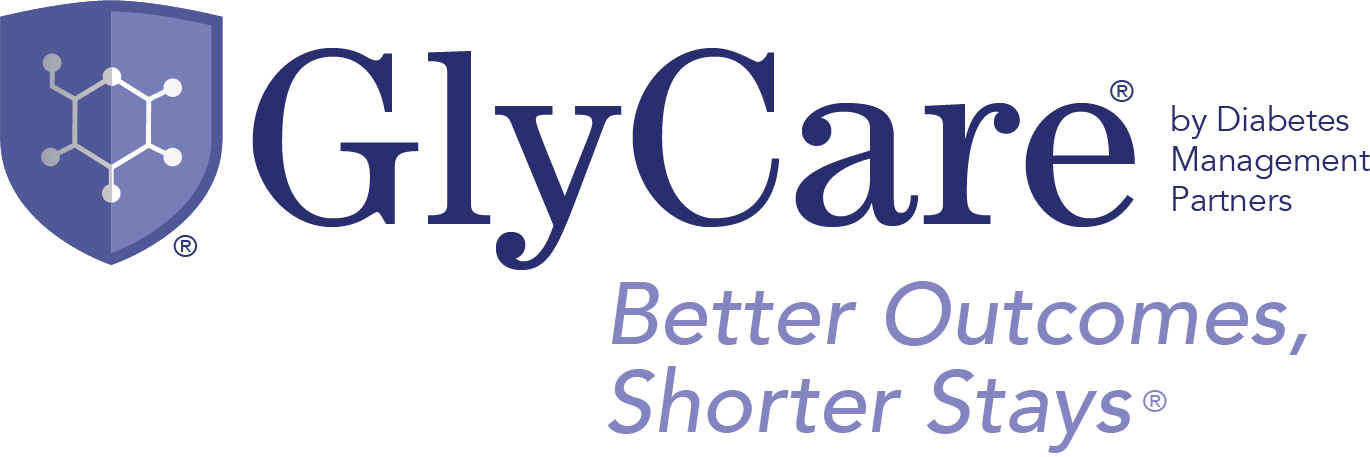How Glycare Can Positively Impact COVID-19
How a Glycemic Management Team Can Help Your Hospital Respond to COVID-19
by Jennifer Peterson, DNP, APRN, LMT, FNP-BC
The United States currently has the most confirmed cases of COVID-19 (CDC, 2020). People with underlying health conditions such as diabetes are at a higher risk of experiencing serious complications from COVID-19 (NCIRD, 2020). Diabetes management groups, such as GlyCare, can help avoid or lessen such complications by managing the blood sugars of patients with diabetes. Keeping blood sugar in the normal range will lower the chance of serious complications from COVID-19.
Why are people with diabetes at an increased risk of complications with COVID-19
People with uncontrolled diabetes have an underlying low-grade inflammatory state which may result in a delayed or inadequate immune response to COVID-19 (Eckel, 2020). The more health conditions someone has, the greater the risk of developing complications from COVID-19. In patients with diabetes, the body’s ability to fight off infection is compromised, increasing the risk of becoming severely ill (ADA, 2020). Viral infections increase inflammation in people with diabetes and so does elevated glucose levels. Because the body is concentrating on reducing the inflammation, the immune response to the new viral threat is suppressed, causing the viral illness to become more severe. Additionally, damage to the circulatory system slows the healing effects of the circulating blood. Patients with diabetes often have comorbidities of circulatory complications, coronary artery disease, and other cardiac involvements. Moreover, when sick with a viral infection, glycemic control may deteriorate during the illness (IDF, 2020), increasing the risk for patients with type 1 diabetes and some patients with type 2 diabetes to develop DKA. This becomes challenging to manage fluid intake and electrolyte levels that are important in managing sepsis. Sepsis and septic shock are some of the serious complications experienced by some people with COVID19 (ADA, 2020). As the body is torn between fighting inflammation and fighting the virus, glucose levels may rise making it more difficult to reign them back in to control. The combination of uncontrolled diabetes coupled with a viral infection leads to more serious complications (ADA, 2020).
What can be done to decrease the risks of COVID-19 for diabetic patients?
If diabetes is well managed, the risk of becoming severely ill is about the same as the general population (ADA, 2020). Well-managed diabetes includes having blood glucose levels within goal range. Goal ranges vary by patient depending on the type of diabetes and insulin sensitivity levels. In general, goal ranges for blood glucose levels are < 120 mg/dL.
How will diabetic patients be cared for if admitted to the hospital?
A specialized glycemic management team within the hospital can focus solely on managing the patients’ blood glucose levels, helping to reduce inflammation and increase the body’s immune response. Hospital physicians are busy managing more acute body processes and often diabetes management is low on their priority list. This is where GlyCare comes in. GlyCare is a team of specialty-trained diabetes management nurse practitioners that only manage patients’ glucose levels. They work in conjunction with the hospital physicians, nurses, and staff to ensure proper blood sugar management. The team can expedite glucose control and subsequently ensure it stays within goal range. This will lessen the body’s struggle of what to address first. With glucose in goal range, the body can focus on its immune response and fighting off pathogens. Patients with diabetes need proper support while in the hospital as well as a safe plan for their medications upon returning home. GlyCare ensures the patient has a safe plan for depart from the hospital until they can follow-up with their primary care physician or endocrinologist. These specially prepared safe discharge plans created by GlyCare also reduce readmission rates to the hospital for adverse events such as medication side effects and hypoglycemia.
Why GlyCare?
GlyCare has proven outcomes in multiple facilities across the southeast United States. Reduced length of stays, reduced readmission rates, reduced hypoglycemic events, reduced hyperglycemic events, and more days within goal range. GlyCare puts patients and their health first. Optimization of diabetes care is the main goal. There is no better time than now to inquire about getting GlyCare in your area.
About the author
Dr. Jennifer Peterson, Nurse Practitioner, is the Director of Quality Assurance and Integration for GlyCare. She has years of experience managing diabetes for patients in the hospital and now trains other nurse practitioners to do the same. Dr. Peterson also ensures GlyCare provides high quality services for all patients through a quality review program she created.
References
American Diabetes Association (ADA). 2020. COVID-19 (Coronavirus).
Centers for Disease Control, National Center for Immunization and Respiratory Diseases (NCIRD), Division of Viral Diseases. (2020, March 26). People who are at higher risk for severe illness.
Eckel, Robert, President of Science and Medicine, American Diabetes Association. (2020, March 25) Why coronavirus is more dangerous for diabetics [Video]. CNBC.com.
International Diabetes Federation (IDF). (2020, March 25). COVID-19 outbreak: guidance for people with diabetes.
International Diabetes Federation (IDF). (2020, March 19). Specialty guides for patient management during the coronavirus pandemic: Clinical guide for the management of people with diabetes during the coronavirus pandemic (v.2).
Learn more about partnering with GlyCare for a turn-key diabetes management service. For more information on how to incorporate either in-person or virtual diabetes management, contact us today.

